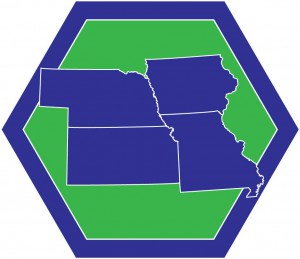Breakout Sessions: Learn Leadership & Advocacy Skills
Session A
Equipping Future Leaders on Advocating for Making Life More Accessible
Nothing About Us Without Us, Including Research!
Personal Disability Journeys: Insights About The Benefits of Peer Support
Equipping Future Leaders on Advocating for
Making Life More Accessible
In this session, participants will learn:
- To make life accessible for themselves
- To take small steps to grow into a future leader
- To take part in boards and leadership committees
Presenter Kevin Dalin lives with bipolar disorder. He has a personal journey of rebuilding and recovery. Through gradual steps of courage, he has:
- Improved his health and wellness
- Lived a self-directed life to do things that are meaningful to him
- Gone back to school
- Created social networks that provided support and friendships
- Advocated for the disability community
Come and join Kevin as he shares his journey. Participants will learn to create their own journey to address their needs.
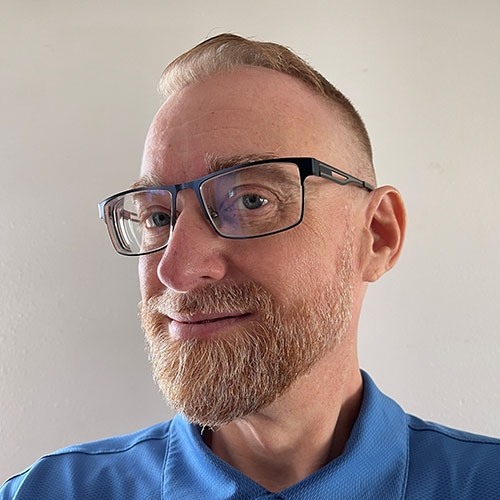
Kevin Dalin
Des Moines, IA
Kevin Dalin lives and works in the Des Moines, Iowa area. Through his career, he has learned how to make life accessible. Kevin works at Easterseals Iowa and has his own business called Tech4Impact. He has also attended many conferences about disability issues. Over the years he has also been a part of many boards about disability advocacy. This has taught him a lot about how to advocate within boards.
Nothing About Us Without Us, Including Research!
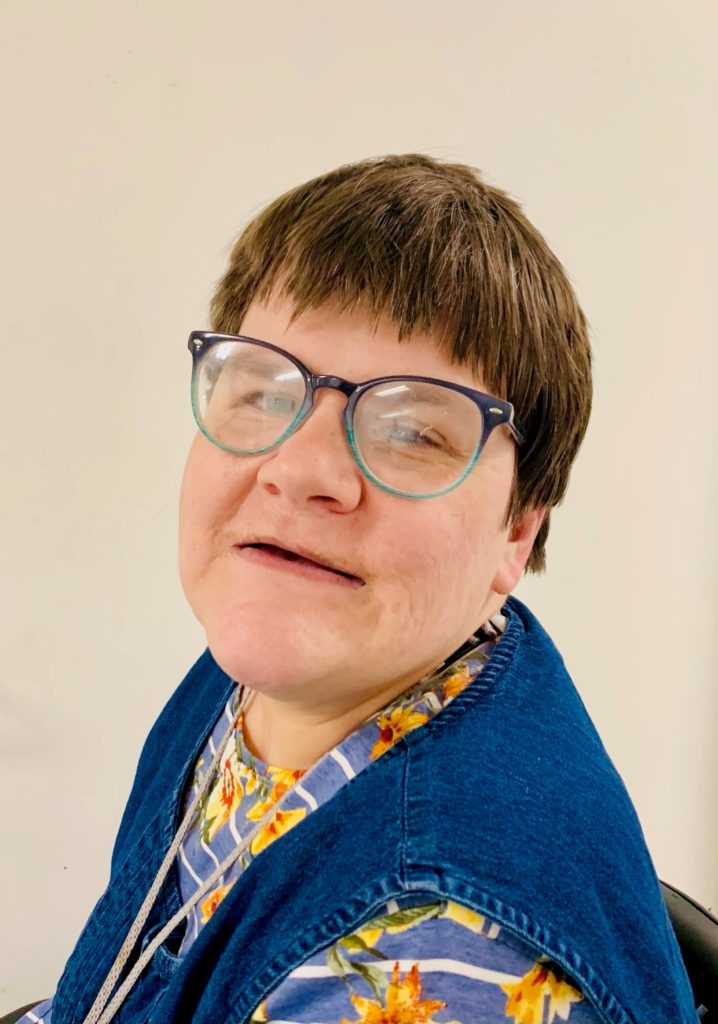
Kelly Smith
Advocate
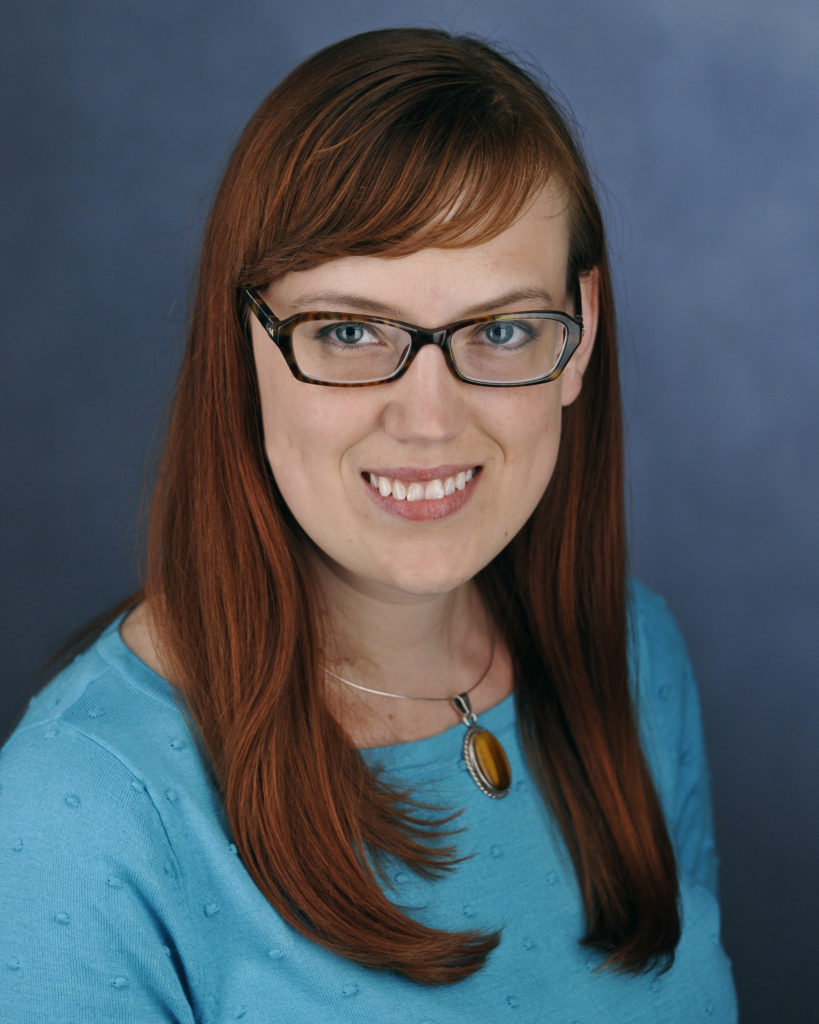
Carrie Wendel-Hummell
Researcher
Research projects on disability issues are often planned without folks with disabilities. Participants will learn why this planning should include them. So, “Nothing About Us Without Us!”
The presenters will also share their research on COVID-19, and how it affected Kansas residents who use Home and Community Based Services (HCBS). This case study will show how including people with disabilities improved their results.
The Presenters also want to learn from you. How can researchers better include people with disabilities when designing research projects?
Kelly Smith advises for a research project that is led by Carrie Wendel-Hummell. This project is about the impact of COVID-19 on HCBS services in Kansas. Kelly and Carrie have worked together on research and training projects in the past.
Carrie used to be a direct support worker. This experience helps her to include people with disabilities in her research. Kelly helps improve research design by providing input based on her lived experience. As a self-advocate with a disability, her input helps guide the research. She also advises on plain language.
Personal Disability Journeys:
Insights About the Benefits of Peer Support,
Person-Centered, and Person-Directed Supports
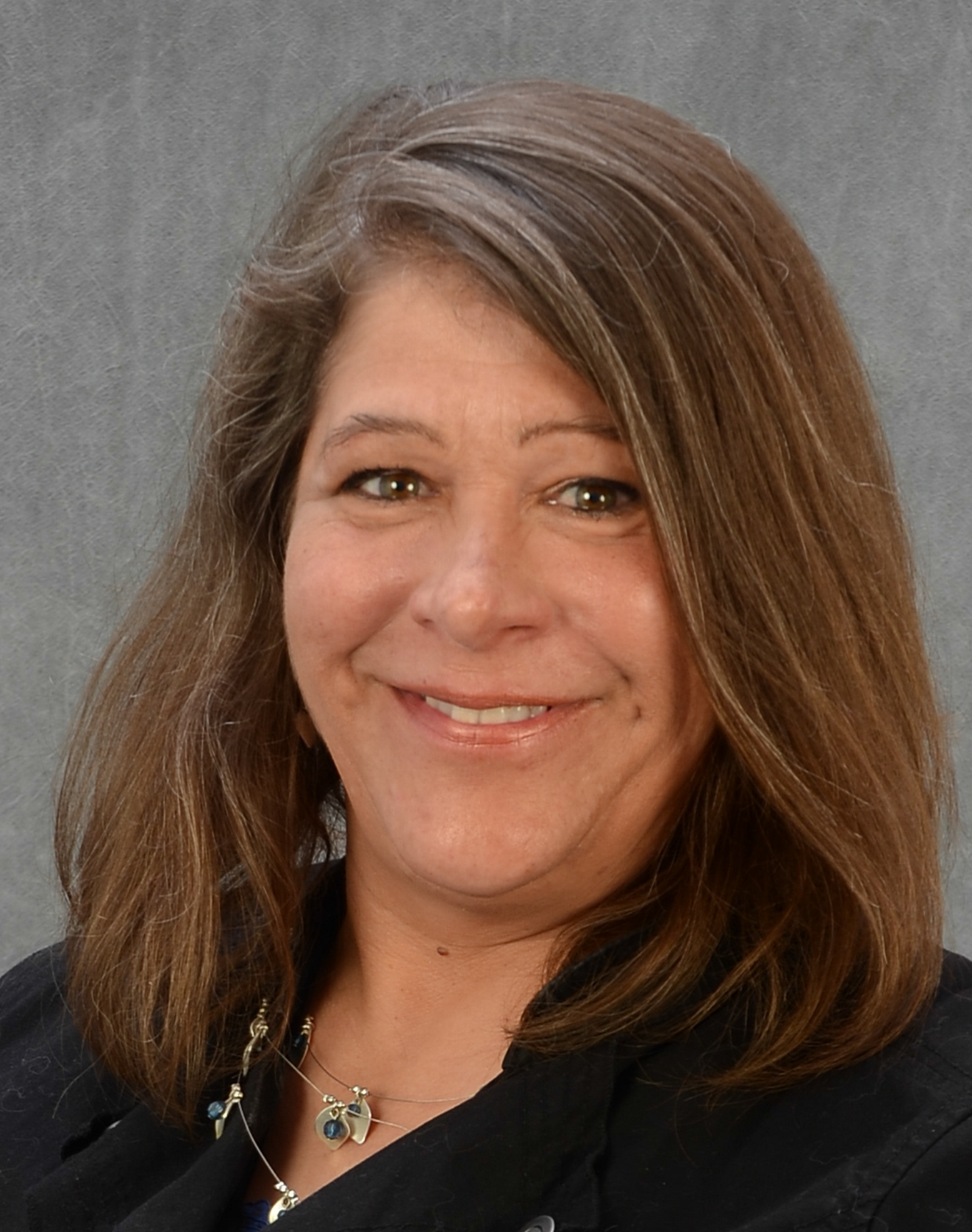
Chris Stewart
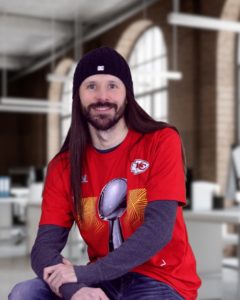
Jordan Hallstrom
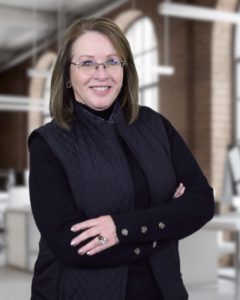
Joy Lewis
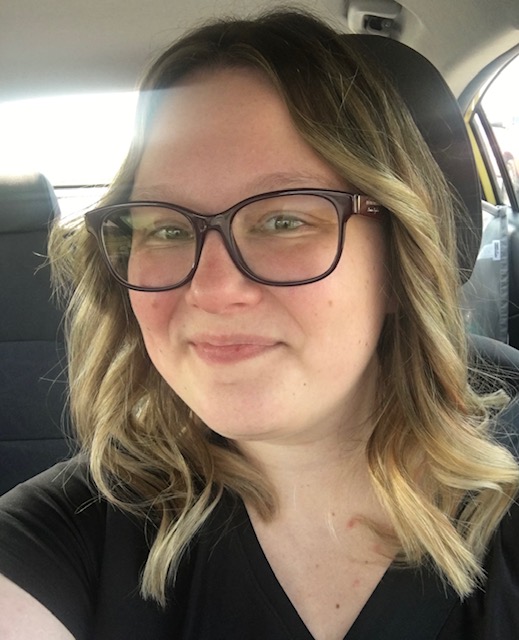
McKenzie Mertes
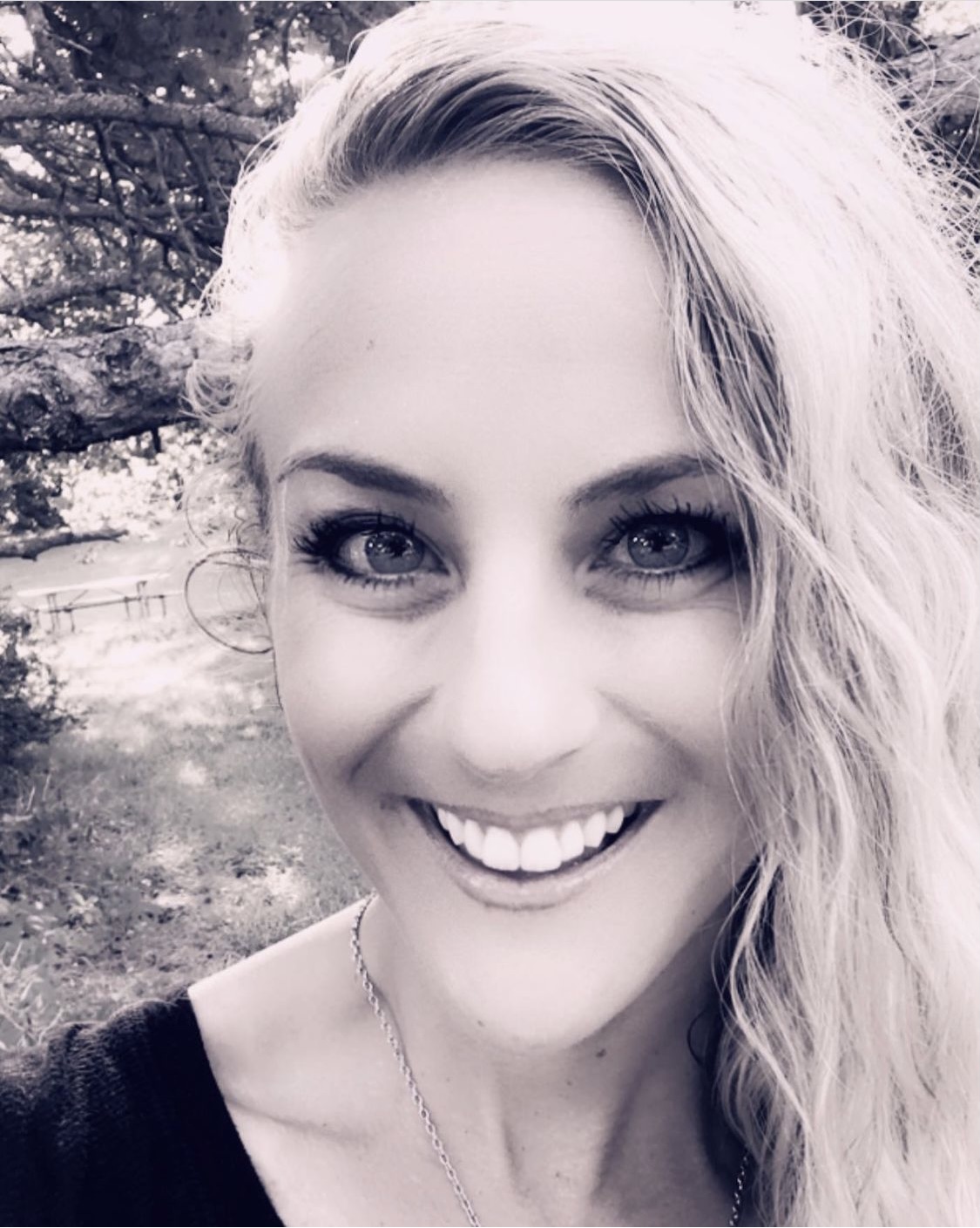
Rachel Kluthe
Peer support is a person-directed, person-centered support. It is very therapeutic. And it helps people with all kinds of disabilities. People who choose peer support often find that their journeys are similar. Often, they have the same struggles.
Presenters Jordan, McKenzie, and Rachel all experienced traumatic brain injuries as young adults. Each felt misunderstood, and no longer as they were before injury. Even though they had supportive families and friends, they focused on challenges. They did not focus on the whole person. With Peer Support in place, peers have a space where they don’t have to repeat their medical history. They can meet and discuss where they are now and their plans for their futures.
Their personal experience applies to people with all kinds of disabilities; not just people with traumatic brain injuries.
Join us and learn from our expert panelists. They will share their personal life journeys. And share what they did to not just survive, but to THRIVE in their lives!

Chris Stewart
Papillion, Nebraska
Professional experiences:
Chris currently works for the Brain Injury Alliance of Nebraska. As the Statewide Resource Facilitator, she works with people living after brain injury. She is partnering with them and their family members to create a grassroots movement. Together, they advocate for new and expanded supports and services. These supports and services will create a better future for all Nebraskans.
Personal experiences:
Chris cares for her son and grandmother, both living after a brain injury.
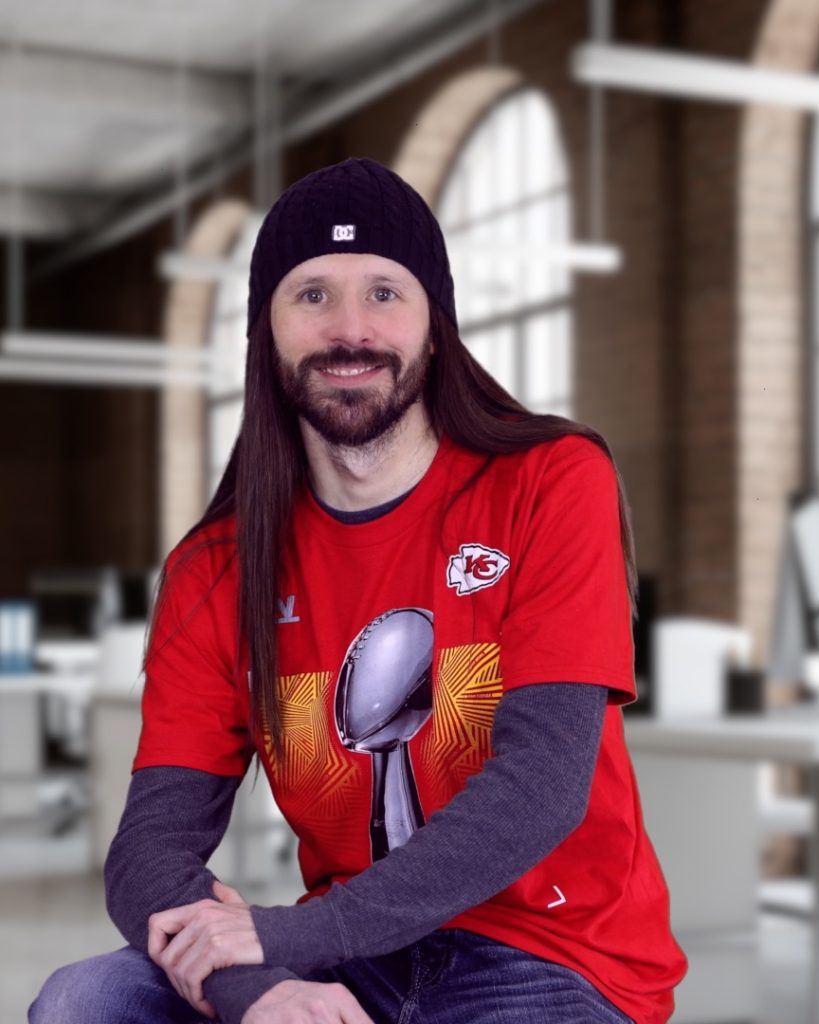
Jordan Hallstrom
Council Bluffs, Iowa
Professional experiences:
Life has been difficult for Jordan due to the lasting effects of a TBI. Jordan is currently working part-time. But he is looking forward to getting certified as a Peer Specialist. Once certified, he can get a job with a mental and behavioral health program. They will match him with people who have similar personal experience. Then, he will help them in their recovery journey.
Peer specialists are able to have a schedule that meets their needs. They are also able to receive an income, while keeping benefits like Medicaid.
Personal experiences:
Jordan is one of the members of the model for Small Peer Groups. He has had traumatic brain injury since he was 17, when he got in a car accident. Since, he has experienced lasting effects, like social anxiety and heightened empathy.
Traditional support groups did not work for him. They did not meet enough. And the large group was too much for him. It also exhausted him emotionally. In the small Peer group model, Jordan is able to feel heard and provide support to the other two members. They meet when requested by one of the three members. They focus on each of their struggles and successes.
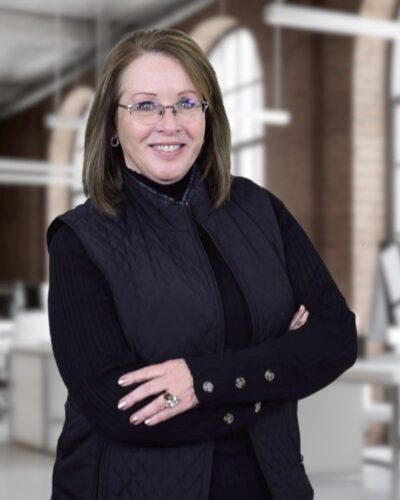
Joy Lewis
Papillion, Nebraska
Joy Lewis is a fierce advocate. She has a passion for helping those who desire to live better and connect with a community that cares. She is a proven leader with a background in starting and running businesses. She co-owns two firms. One is a consulting firm that does project management. The other is a staffing firm that fills IT and Project Manager roles in the Omaha, Nebraska, area.
Since 2016, Joy has been the CEO of LightBridge, Inc. A software development company that supports people affected by Traumatic Brain Injuries. This includes survivors, their families, and caregivers. She founded the company many years after her son, Jordan, suffered a life changing TBI from a car accident.
Joy is always pushing for change and progress. She believes that people who truly care do these things:
- guide others to recognize their untapped potential,
- help them to grow in confidence
- Help others to use their unique talents, skills, and knowledge to contribute to the world; even while enduring unimaginable health challenges.
For the past several years, Joy has been working with software development teams across the country. She is working with them to create and release a new app, one that provides technical support for people who need help staying organized and accountable. This app will help them have a more fulfilling and independent life. It will help them develop a daily routine and connect within a caring, supportive, and safe community. By the end of 2021, Joy plans to release the app to the public so that everyone may realize its benefits.

McKenzie Mertes –
Omaha, Nebraska
Professional experiences:
McKenzie has lasting effects from Lyme Disease and a Traumatic Brain Injury. Seeking new treatments has helped with her energy and focus. This allows her to work full-time and advance in her career. She works in the billing department of the Children’s Hospital in Omaha.
Personal experiences:
McKenzie is a participant in the model Small Peer Group. She has a lot of experience using her journey. She is the founder and co-leader of a “Teens & Twenties” Facebook group. She has also started an in-person group with her mother, a Speech Language Pathologist. Who has also experienced traumatic brain injuries. They have both researched and sought out new therapies for their brain injuries. These therapies have proven helpful with managing the lasting symptoms of brain injury.
Mackenzie has found the model small peer group helpful. It meets her personal needs in a way that the larger groups did not. Now, she is able to keep perspective, share helpful tips, and celebrate successes with her peers. She is also able to empathize with personal challenges.

Rachel Kluthe
Council Bluffs, Iowa
Professional experiences:
Rachel learned a lot while recovering from multiple traumatic brain injuries. While recovering, she worked on achieving her doctorate of education. Now she teaches 7th grade math for Seward Middle School.
She is an expert in supporting and educating people with traumatic brain injuries. This includes the symptoms resulting from COVID.
Rachel has shared her experiences with the public. She wrote and posted her “Survivors’ Story” on biane.org. She also does presentations for the staff at other schools and at the annual Brain Injury Conference.
Personal experiences:
Through personal experience, Rachel learned that she needed small peer groups. She believes this model can help people living after a brain injury. When she was in the advanced education program, her colleagues and fellows did not provide her with support or empathy. This is when she realized the invisible challenges of people with traumatic brain injuries. She realized that formal education is not even aware of these challenges.
For Rachel, the definition of leadership is to help others grow. This requires someone to appreciate each person as an individual. Rachel has become the natural leader of the model for the Small Peer Group. She schedules meetings when needed. She also makes sure everyone has an opportunity to be heard and is respected for their insights.
Session B
Advocacy = Passion + A Plan
Organizing for Change: #UpgradeMedicaid
Community Living Ambassadors: Our Stories of Transition to Community Living
Advocacy = Passion + A Plan
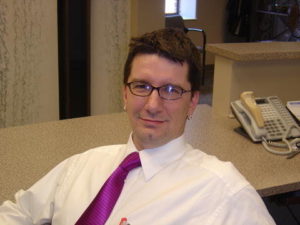
Brad Meurrens
Disability Rights Nebraska
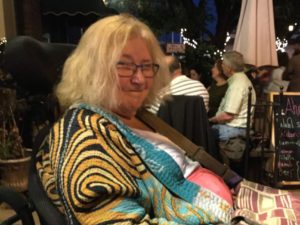
Kathy Hoell
Nebraska Statewide Independent Living Council
Successful advocacy efforts have two things in common:
- A PASSION that drives the need for advocacy
- A PLAN to move that passion into action
This session will help participants organize, plan, and put in place their advocacy. Participants will learn:
- Why advocacy is important
- How to analyze an issue
- How to develop “strategic questioning”
- Methods of advocacy
Brad Meurrens and Kathy Hoell have over 40 years combined experience as advocates. They advocate for disability public policy at the state and federal level. Both are very experienced and strong disability rights advocates. Please join Brad and Kathy in this session. It will give you the tools you need to turn your passion into advocacy action!
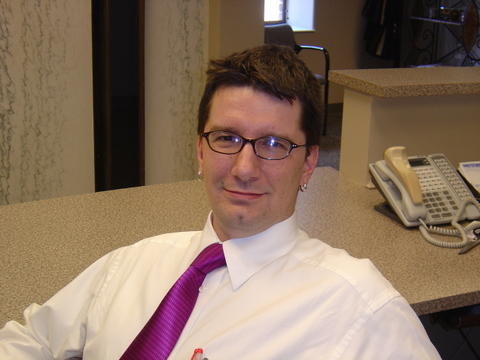
Brad Meurrens
Public Policy Director at Disability Rights Nebraska
Brad Meurrens is the Public Policy Director for Disability Rights Nebraska. He has a Bachelor’s degree in Latin from the University of Nebraska. He also has a Master’s Degree in Public Administration from Syracuse University. He has been the main lobbyist for Disability Rights Nebraska since December 2001.
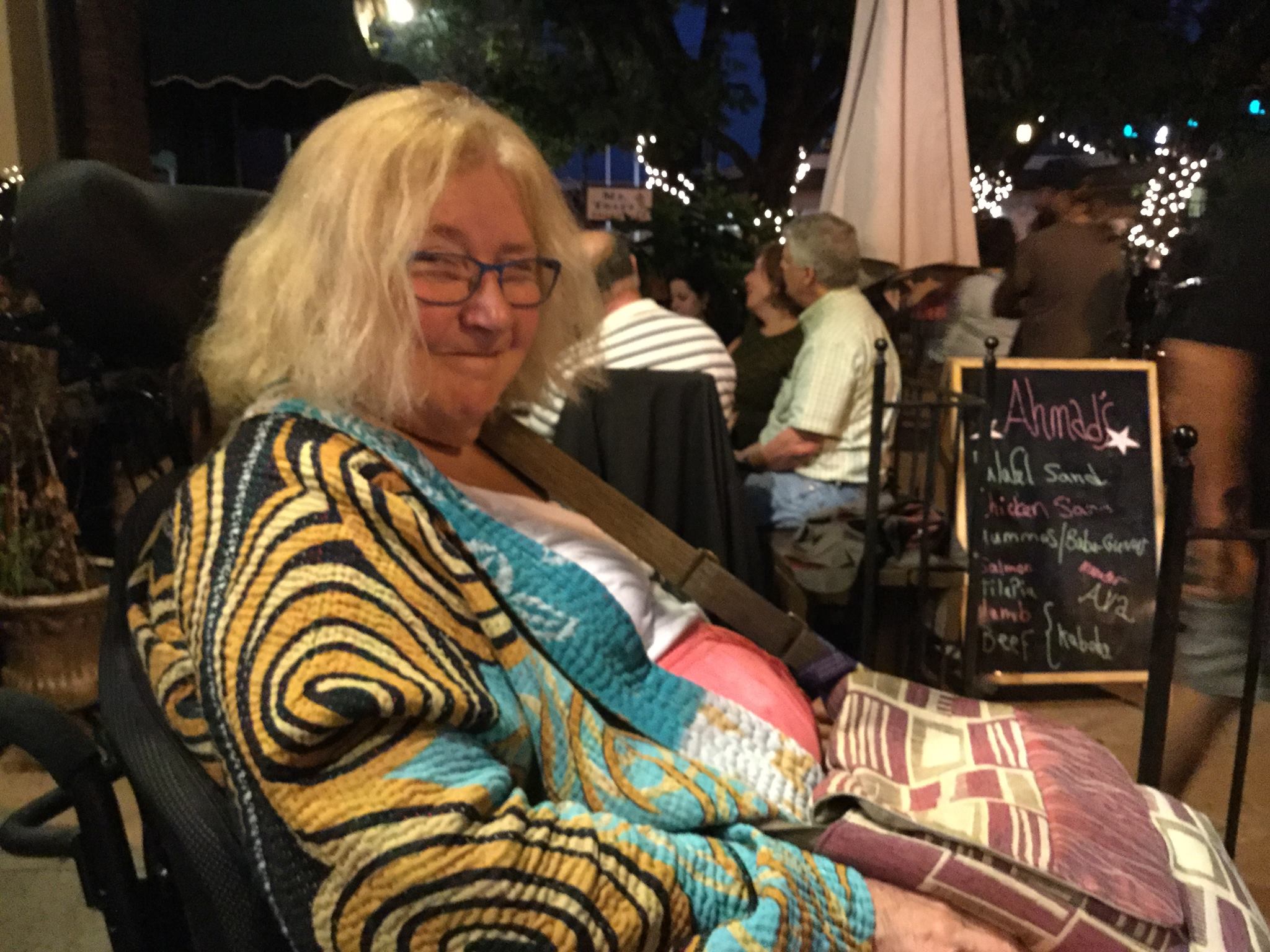
Kathy Hoell
Executive Director of The National
Statewide Independent Living Council
Kathy Hoell has been a strong and successful self-advocate for around 40 years. From 1994-1998, Kathy was a Research Health Scientist for the Veteran’s Administration. She focused on mental health and substance abuse.
Now, Kathy works at the Nebraska Statewide Independent Living Council (NESILC). She has been the Executive Director since October of 2002. Before, she was a member of that organization, and she served as Chair in 2001-2002.
Kathy has a Master’s degree in Public Administration from the University of Nebraska. She serves on several committees, including the Nebraska Consortium of Citizens with Disabilities. in 2005, Kathy received the Earl Walden Award for Outstanding Rural Advocacy from two organizations:
- The Association of Programs for Rural Independent Living (APRIL)
- Independent Living Research Utilization
Organizing For Change: #UpgradeMedicaid
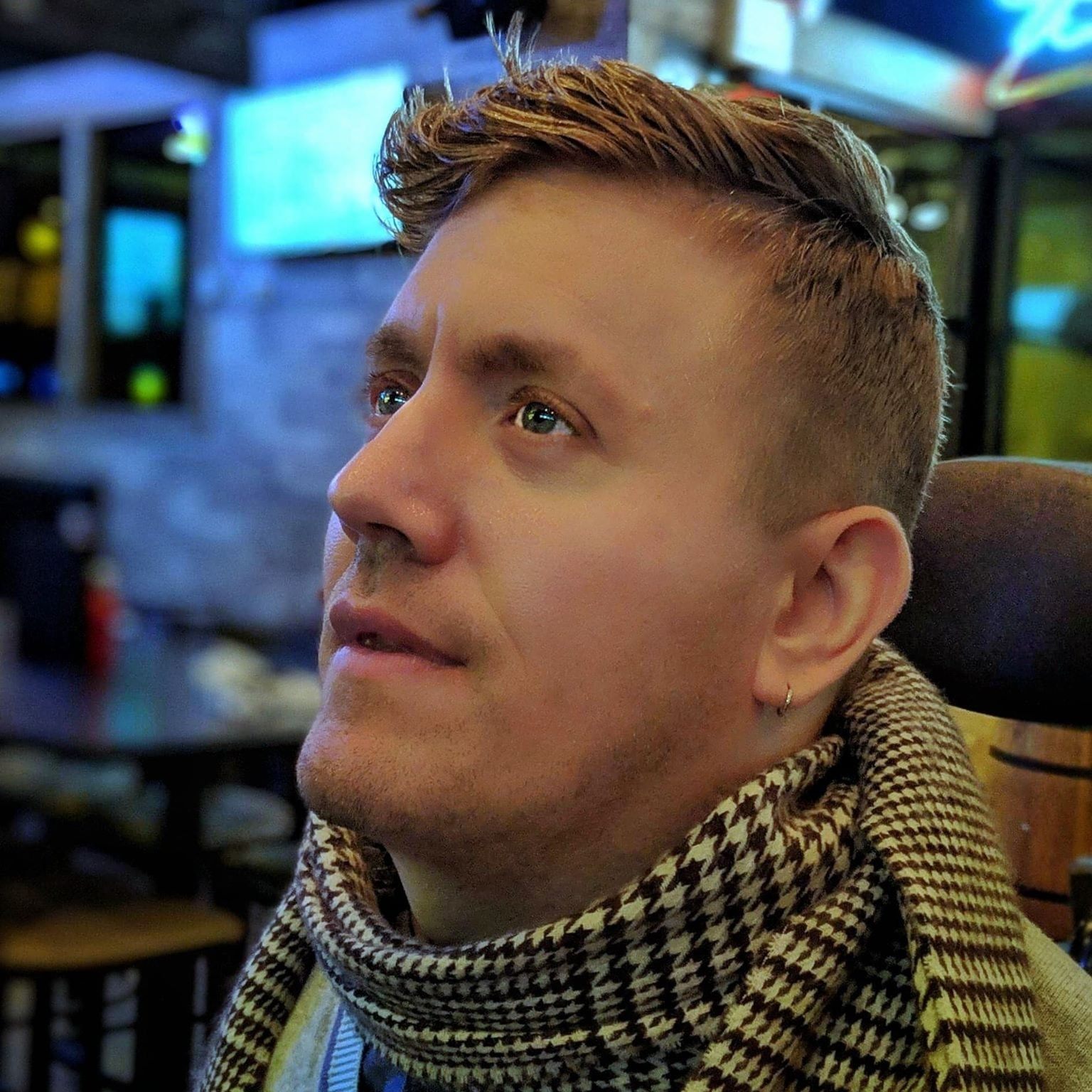
Tucker Cassidy
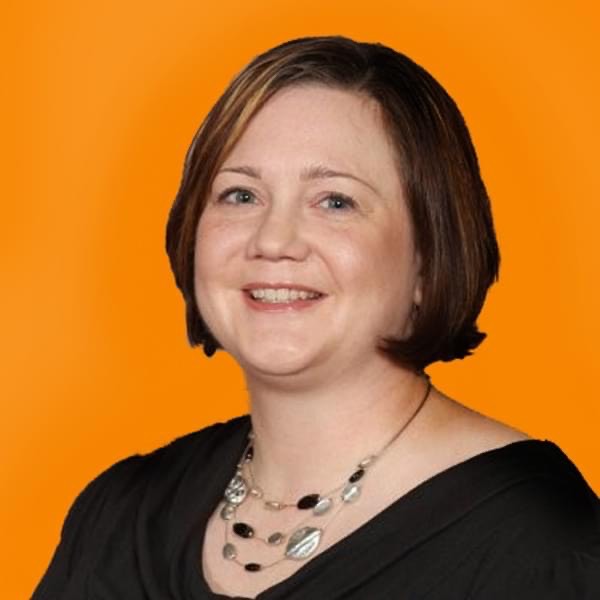
Jenn Wolff
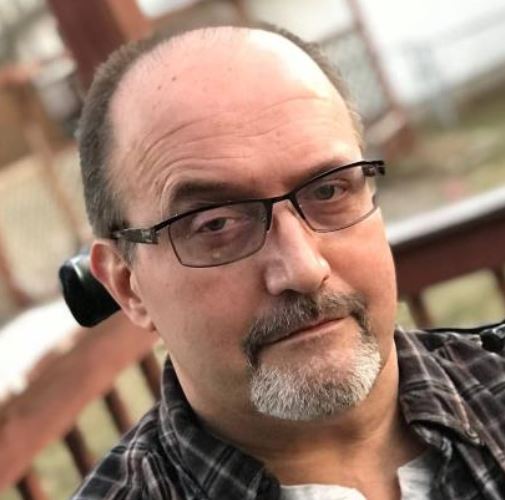
Greg Fier
Tucker Cassidy and Jenn Wolff started the #Upgrade Medicaid movement in Iowa. Greg Fier is a newer member of this statewide advocacy group. This group is led by individuals with disabilities.
So many Iowans with disabilities are fed up with Medicaid privatization in Iowa. It has made life SO MUCH HARDER for many Iowans. Through the leadership of Jenn and Tucker the group has grown by leaps and bounds. Many leaders have stepped up, and new folks are joining all the time from all across Iowa!
The panel will share how they started, and some of the many advocacy activities they have engaged in over the past two years. They will provide tips and other ideas on advocacy strategies that have worked well for them in Iowa. Including the lessons they have learned about:
- Accessibility
- Outreach
- Taking the time to celebrate the small things AND each other
Please join these passionate disability rights advocates in learning how to organize for change!

Tucker Cassidy
Tucker Cassidy works for himself as a webmaster, and is a disability advocate. He serves in both political and grassroots realms. He sustained a spinal cord injury in 1994. At the age of 18 an accidental gunshot to the neck resulted in quadriplegia.
Tucker began advocating after he experienced systemic injustice. Injustices by insurance companies, Medicaid, and home and community-based services.
He served on the board of Access 2 Independence, a Center for Independent Living in the Iowa City area. And he became involved in the Iowa Democratic Party. Tucker currently serves as an advocate in many ways, including:
- Serving on the Iowa Democratic Party Disability Caucus
- Sitting on the board of OPE! PAC
- Serving as a committee member of his city’s ADA Compliance Commission
- Serving on the advocacy committee for the Iowa Chapter of United Spinal

Jenn Wolff
Jenn Wolff is an occupational therapist and organizer. She has had depression for most of her life, and became physically disabled in 2003. This was caused by a surgery to remove a tumor in her spinal cord.
Her passion for advocacy started when insurance wouldn’t pay for a new wheelchair. She started in grassroots advocacy by working with UsersFirst. Then she worked with the United Spinal Association.
Jenn is currently serving many organizations. She serves on the council for the North American Spinal Cord Injury Association Consortium. She’s on the National Council on Independent Living as well. She represents Region 7. She is also involved with Embrace: Celebrating Diversity.

Greg Fier
Greg Fier has had multiple sclerosis and clinical depression for 26 years. He has not been able to move his arms or legs for the past 13 years.
He began his advocacy work in 2014 with the National MS Society. He worked with state and local lawmakers, promoting legislation that improved the lives of those with MS. He is able to advocate by operating his computer and phone. He uses his head and voice to operate them. Currently, he holds positions in these organizations:
- Member of NMSS Government Relations Advisory Committee
- District Activist Leader for the NMSS
- Cofounder of the Clinton, Iowa MS Support Group
- Board President of the non-profit Bob Finch Memorial Fund
He became interested in Medicaid advocacy when he had difficulty keeping personal attendants. These people help him with daily tasks through the Consumer Directed Attendant Care program. He was also forced to become poor to be eligible for Medicaid.
Community Living Ambassadors:
Our Stories of Transition to Community Living!
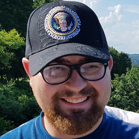
Brady Werger
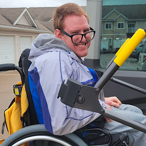
Michael Martin
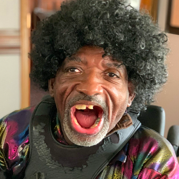
Monnie Hall
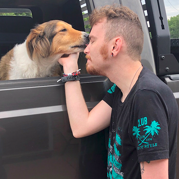
Michael Gillette
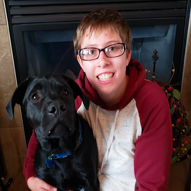
Julia Mueller
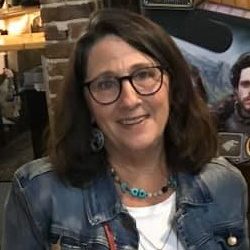
Tammie Amsbaugh
The Iowa Money Follows the Person program is a federal grant program. It has helped many people with disabilities move out of institutions. These people are then able to move into the community.
Those who have used this program can become Community Living Ambassadors. These Ambassadors share their journey with others. This is what they will share:
- What it was like to live in an institution
- Why they wanted to move into the community
- What happened when they moved out of the institution
- How they adjusted to living back in the community
Many of these Ambassadors also shared their story at the federal level. They worked with advocates across the country to keep the Money Follows the Person Grant going. Their advocacy was key to getting the program reauthorized.
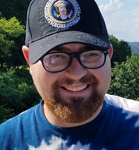
Brady Werger
Brady Werger is a member of the Iowa DD Council. He is currently serving on the executive committee.
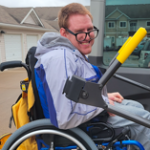
Michael Martin
Michael Martin is a member of the Iowa Olmstead Consumer Task Force.
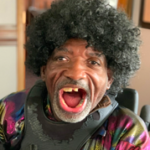
Monnie Hall
Monnie Hall has a long history of self-advocacy. He also has a long history of advocacy with lawmakers
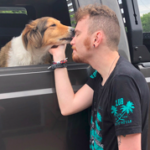
Michael Gillette
Michael Gillette is active in many community activities, especially, around Black Lives Matter and the Iowa Caucuses
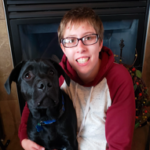
Julia Mueller
Julia Mueller helped with Get Out The Vote in the Fall of 2020
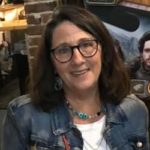
Tammie Amsbaugh
Tammie Amsbaugh works for the University of Iowa Center for Disabilities and Development. She manages the Community Living Ambassadors Program.
